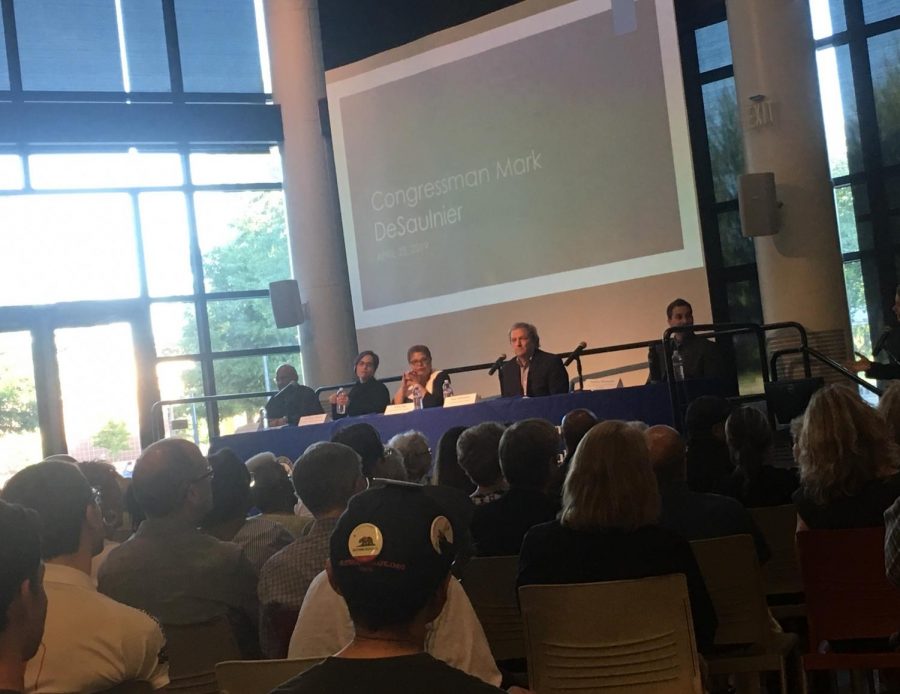“Racism is just as much a part of this country as apple pie”: Members of Congress gather at DVC
Congressman Mark DeSaulnier and Congresswoman Karen Bass amongst other experts answered questions in a town hall held at DVC on April 23 in the cafeteria. (Emma Hall/The Inquirer).
April 25, 2019
It is considered by many that the discussion of race is ongoing. On Tuesday, April 23, the conversation regarding race was held at Diablo Valley College−yet the harvesters of comment and perspective were ones of a congressional body. Congressman Mark DeSaulnier fostered the dialog alongside Congresswoman Karen Bass and a panel of experts from the Bay Area.
Throughout the town hall, a sentiment towards conversation and understanding was strongly underlined, especially where tensions in the conversation about race have increased.
“The genesis of this was Ferguson. We are in an environment where we need to be having discussions for people who are listening,” said DeSaulnier. “Every time I listen to someone’s opinion I learn something new.”
The cafeteria, in which the town hall was cultivated fostered a full and engaged audience.
“Often times when race comes up, it’s such a heavy topic in our country−it is because we’ve never figured out how to deal with it,” said Bass. “We’ve never even acknowledged our history and it’s questionable to the extent that we’ve been taught our history. But I look out into this room and at all the people here and it makes me and fills me up with hope.”
Bass touched upon the current political climate in the United States, especially regarding President Donald Trump’s influence on the outlook on race. Despite this, she believes there is a fire being festered from activists towards the fight against racism.
“You can look at this time period and it could be very depressing, but I don’t look at it that way,” said Bass. “I am a lifelong activist and one thing I have to say about (Trump) is that he has been an absolute catalyst for a whole new level of activism that I haven’t seen in decades so my job is to grab that energy and channel it.”
Bass, beside her colleagues on the panel, recognized that race can be an uncomfortable conversation yet despite the discomfort, the validity of the matter remains.
“It’s an uncomfortable topic but we have to learn on how to have this discussion and have it objectively and recognize that this is our history, racism is just as much a part of this country as apple pie,” said Bass.
The panelists dived into the more intricate details regarding race. The three models of racism were also touched upon: interpersonal racism which stems from discrimination, institutional racism, and systematic racism.
“When I think about why race matters is because race is made. Outcomes are racialized and gender. Outcomes don’t stem from bad people, they stem from concrete policies, institutions, and structures.” said Steven Pitts, the Associates Chair of UC Berkeley’s Labo Center who was amongst the panel. “…So when we talk about race you must raise a question that says: ‘what are those policies? how do those institutions function? If we don’t raise the question, we’ll never address the issue.”
At the keystone of the conversation, the panel emphasized that not only is the understanding race vital, but to use that information for change in our communities.
“Talking is incredibly important to tell stories and understand people’s humanities…but you can’t stop at storytelling and conversations. You must go forward and analyze power in your community, in your city, in your county,” said Pitts.







































































